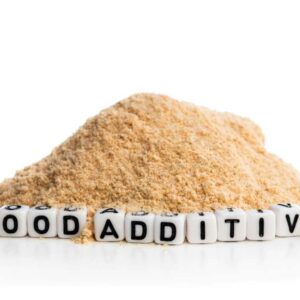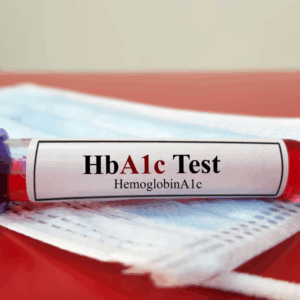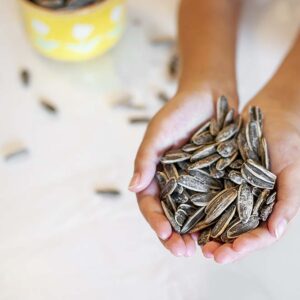
My Horrible Gut Pain -- Part 2
In Monday’s Living Well Daily, I described the wracking gut pain that hit me a few weeks ago and my struggle to figure out what was wrong.
It hurt after I ate, every time. And yet I never felt nauseous or lost my appetite. It was driving me crazy…
Until I got an idea one day and bought a loaf of cinnamon raisin bread. The next day, I ate the whole thing and felt fine.
Can you guess what was going wrong?
I’ll give you a couple more hints:
- Previous to all this, I had been eating a low-carb, mostly paleo diet… although not as natural as I would have liked.
- The whole “cinnamon raisin” was a bit of a red herring… the extra flavor didn’t matter. The point was the loaf’s essentially a 100% carb meal.
- The day after I ate it, I bought another item at the grocery store… began taking it before every meal… and have felt great ever since.
OK, ready for the answer?
Enzymes.
I lacked digestive enzymes, specifically for processing fat and protein. Eating the bread felt fine because I had the enzymes for it. But a healthier fat- and protein-laden meal? Not so much.
This was confirmed when I later began taking an enzyme supplement before every meal: The pain went away. And a painful reconfirmation happened every time I missed a dose — the pain would come back.
Why is this?
Digestive enzymes break down our food into nutrients so that our bodies can absorb them.
They’re produced in the pancreas, small intestine, salivary glands, and stomach. Normally, enough are made to help properly digest food.
But sometimes your enzyme production drops. This can be due to stress, low stomach acid, or inflammation. In my case, I suspect stress contributed.
If you’re lacking enzymes, food doesn’t get properly digested and is eliminated without the nutrients being properly absorbed by your body. You can see this for yourself when you look in the toilet. In my case, it also lead to outright pain, which finally got my attention.
As nice as it was to have discovered the issue, I had zero interest in using a crutch for the rest of my life. So when our senior health editor, Brad Lemley, visited Baltimore, I told him my story. Here’s roughly what he had to say:
“Fermented foods are what you need. We weren’t meant to eat 100% clean, sanitized products our entire lives.”
Made complete sense. Fermenting a food means adding yeasts and/or bacteria to break down some of the carbs. This results in the production of healthy bacteria.
You’re probably familiar with sauerkraut, which is a fermented food. Unfortunately, commercial sauerkraut has been pasteurized, so all of the beneficial bacteria are killed.
Which is why visiting the farmer’s market was such a nice coincidence for me. Especially when I happened upon the booth showcasing kombucha.
Kombucha is a fermented drink of sweetened tea produced by fermenting the tea using bacteria and yeast. As a result, it’s rich in active enzymes.
I bought a bottle.
“Make sure to put it in the fridge as soon as you get home,” the woman running the booth warned me. “And don’t shake it before you open it.”
That gave me a chuckle, but Laissez Faire Today’s Chris Campbell, who was with me at the time, confirmed this was a bad idea: “It’s not too funny when you’re cleaning up lavender that’s sprayed all over your apartment.”
Duly noted. As soon as I got home, I released the cap with a *thunk* and poured a couple fingers’ worth. Then took a swig.
It was sweet with some serious zip to it and warm in my gut. And an excellent omen for how things would go.
For the next couple weeks, I’d take a swig of kombucha in the morning and then take my enzyme pills as usual… but then carefully reduced the number.
Long story short, I haven’t had any pills in a week and I’m feeling fantastic.
And it got me to thinkin’: How long had this truly been progressing? Sure, I finally felt enough pain a few weeks ago to do something, but how long had I been lacking in digestive enzymes before that? Months? Years? Since I was born?
The sad part is many doctors will scoff at the idea of “lacking in digestive enzymes,” but wouldn’t you know it, as soon as I began taking them, I felt better.
A nice bottle of kombucha, as well as other fermented foods like sauerkraut, kefir, and yogurt which hasn’t been zapped of its active cultures, will always have a place in my kitchen.
Humans were meant to eat a certain amount of rotting stuff, like it or not. Kombucha, however, is a downright delicious way to get your healthy share. Find some at your local health food store or farmer’s market and try it out.
And please do so even if you aren’t suffering from poor digestion right now… because perhaps you only think you’re not. You might be shocked by how much better you feel, how much more energy you have, and how other seemingly “unrelated conditions” disappear when you improve your digestion.
Regards,
Nate Rifkin
Underground Health Researcher
Written By Nate Rifkin
Nate Rifkin is an obsessed health and mind-power researcher and author. To hear more from Nate, sign up to receive Living Well Daily for free, here.
View More Free Articles
"Invisible" Food Ingredients SABOTAGE Blood Sugar
If you’re trying to keep your blood sugar in check, you know the drill. Cut way back on sugar in your diet. While you’re at it, rein in your fat intake too, which can lead to insulin resistance. And don’t forget the extra calories—they add up fast and can sabotage your blood sugar control. But...
The Alarming Microplastic Secret Hidden in Your Chewing Gum
Today I want to honor and thank mothers and mother figures whose caring hearts have guided us through life’s journey. Your love has shaped generations. Happy Mother’s Day! That pack of gum in your pocket may be doing far more than just freshening your breath. A disturbing new study finds chewing gum is a surprising...
Plant Compound SLASHES A1c Levels in 12 Weeks
Diabetes is skyrocketing in the United States. And the trend shows no sign of slowing down. The projected number of adults with diabetes is expected to increase from 22.3 million (9.1 percent) in 2014 to 39.7 million (13.9 percent) in 2030, and further to 60.6 million (17.9 percent) by 2060. That’s a massive 165 percent...
Two-Week Diet Switch Transforms Your Health
You know how you feel sluggish and “off” after a vacation filled with fast foods and processed snacks? Well, it’s not all in your head (or merely guilt). When you switch to an unhealthy Western-style diet, there are physical consequences—and they kick in faster than you might think… The Western diet is characterized by ultra-processed...
WARNING—Your Water Bottle Is Hiding a Disgusting Secret
Recently, a few people have asked me if it’s true that their water bottle has more germs than a toilet seat. It’s a shocking comparison that’ll make you think twice about everyday objects you use without much thought. So, is this claim true? Well, I must warn you that you might not like the answer…...
Research Reveals 3-for-1 Brain Protection "Checklist"
Age-related brain diseases—including stroke, dementia, and depression—threaten our quality of life. They can take the shine right out of your Golden Years. But you don’t have to take these threats lying down. While there are no guarantees in life, there are steps you can take to turn the odds in your favor—especially when it comes...
Mailbag: Your “Healthy Diet” Might Leave You Running on Empty
“Do supplements really work?” Hopeful Skeptic Hi Hopeful, That’s a fantastic question! It gets straight to the heart of a vital fact about human biology. Our bodies are incredible machines. But they don’t work in a vacuum. They require outside help to function. For example, they can’t manufacture most vitamins and minerals on their own....
Forgotten 80s Superfood Reemerges as Artery Superstar
Do you remember when vitamin E was the talk of the town? This common nutrient had a surge of popularity in the 80s and 90s. But now I can’t remember the last time I had a patient ask me about it. Well, it turns out this forgotten 80s superfood deserves another moment in the spotlight....
Strokes CAN Strike Twice—This Simple Fix Cuts Your Risk 20%
They say lightning never strikes twice in the same place. But that old adage couldn’t be further from the truth when it comes to strokes. If you’ve had a stroke, you might think you’re out of the woods once you recover. But the reality is far different… A comprehensive study published in JAMA revealed the...
Can Your Diet Defend Your Brain From Aging?
Our brains work hard every day, helping us solve problems, create memories, and connect with loved ones. But as we age, they face new challenges that can quietly chip away at our vitality. One of those challenges? The buildup of iron. Though iron is essential for many functions, too much can harm your brain, contributing...









